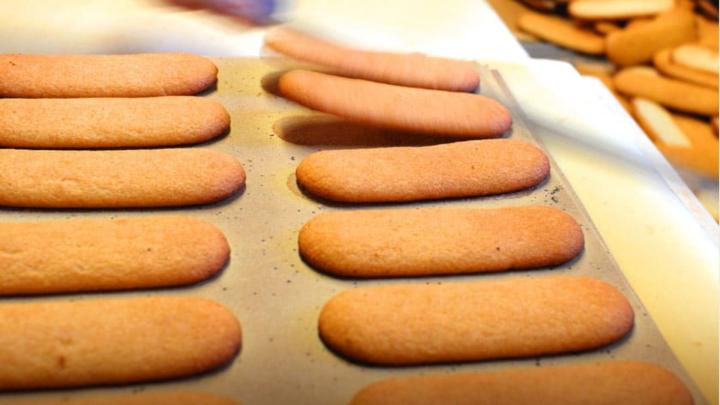We do not always pay attention to or think about the meaning of the terms we use on a daily basis, such as for the word biscuit, which comes from Latin and means bis coctus, twice baked. In fact, we also call biscuits shortbread and crackers, and other products, which in fact are not baked twice, but only once.
For the biscuits from Novara, however, the term is appropriate. These delicious biscuits originated in city convents in the mid-16th century as a gift from the Novara clergy for the Roman clergy in the week after Easter. Their ingredients are simple: wheat flour, eggs and honey.
In 1852, the Camporelli family resumed the tradition and began production, perfecting the formula, resulting in a product with wholesome ingredients.
The preparation is not too complex: there is a very short first baking that is required to make the light and is done at a high temperature, around 300°, for no more than a couple of minutes: the biscuits are placed on baking paper, placed on top of a serpentine-heated marble or stone.
Baking on paper prevents direct contact with the base of the oven and serves to make it easier for the biscuits to come apart: this operation, according to ancient tradition, is still done by hand, and the biscuits are peeled off one by one with the fingers. The second baking, on the other hand, is sweeter and much slower, and is used to make the biscuit especially crisp and crunchy.
You can buy these fragrant biscuits at the historic Camporelli workshop: https://www.camporelli1852.it/biscottino-di-novara/

